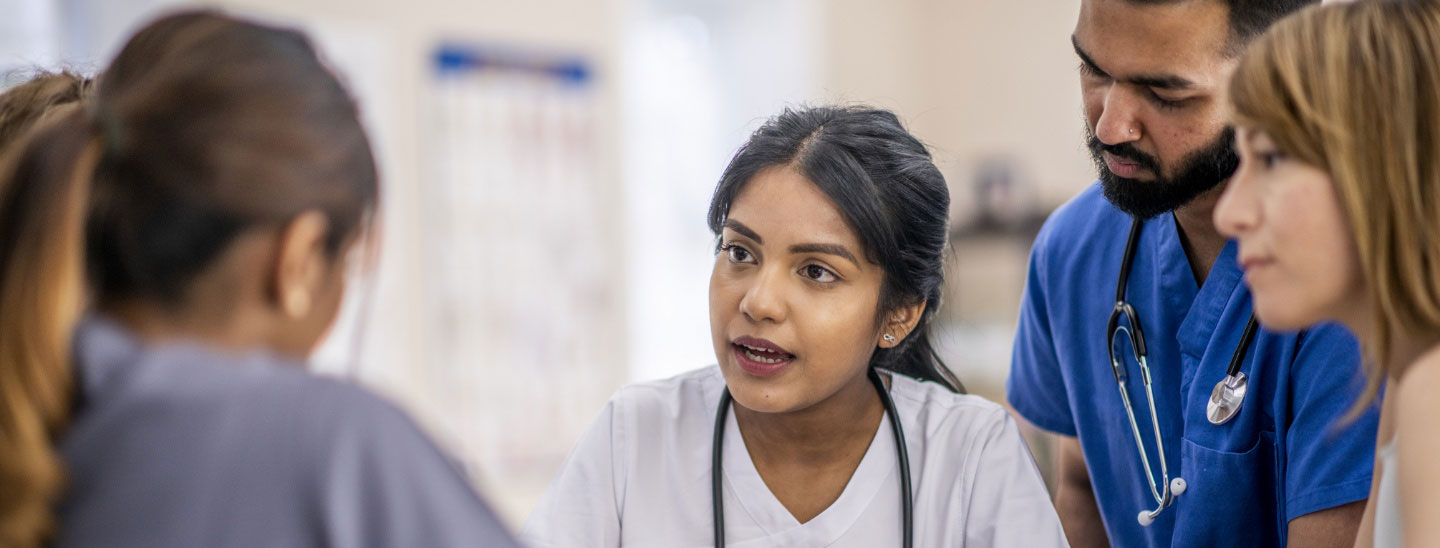What you’ll be studying
You’ll need to complete four subjects during your program.

4 months
February, June, October
Melbourne On-campus
Not available to domestic students
A$18,516
CRICOS 109163J
This certificate will provide you with the basic skills to enter the Community Health and Allied Health industries in an entry level position.
You may also study four more subjects to complete a Diploma of Health Sciences. With this Diploma you may be eligible to apply for entry to the second year of the Bachelor of Nursing or other Allied Health areas such as: Podiatry, Occupational Therapy, Prosthetics, Physiotherapy. Upon completion of the degree, you’ll be ready to register with Professional bodies such as: Australian Health Practitioner Regulation Agency (AHPRA), The Australian Podiatry Association (APODA), and Allied Health Professions Australia (AHPA)
You’ll need to complete four subjects during your program.
In this subject students will be introduced to the anatomical organisation of the body and the basics of cell structure and function. The fundamentals of the nervous and endocrine systems will then be explored in the context of mechanisms of physiological control. This information will provide the foundation for the study of the major organ systems of the body, which include the respiratory, cardiovascular, renal, digestive, reproductive systems and metabolism. Underpinning these studies will be the concept of homeostasis and how it is maintained by integration of organ system functions.
Assessment: Workshop Quiz (10%), Team and Workshop activities (10%), Collaborative testing (40%), Exam (40%)
HHLT1IPP Introduction to Professional Practice is a core subject which will introduce you to the health care system; as a consumer participants, as a health and human services practitioner and as part of a health care team.
This subject also offers you the opportunity to reflect on your own experiences within the health care system, and to use this to analyse and develop your understanding of health and human services. Group work is an essential component of University studies, and you will explore the nature of group work and team based assessment, as used across all subjects. Concurrent with HHLT1IPP is HHLT1LHS Learning in Health Sciences, which covers academic skills such as referencing, academic writing and presentations, critical analysis, and academic integrity.
Assessment: Class Tests (20%), Case Study (20%), Essay (30%), Exam (30%)
In this subject students will develop the foundation knowledge for working with individuals in health and human services settings. Students will learn how particular characteristics and actions of an individual impact on health and welfare outcomes. Students will be: (i) presented with frameworks, including a developmental perspective, for understanding how the characteristics and actions of individuals impact on health outcomes; (ii) provided with foundation knowledge for understanding how individuals present in, and progress through, health settings; and (iii) reviewing theoretical approaches to producing individual change in health and wellbeing settings.
Assessment: Group Presentation (20%), Individual Poster Presentation (20%), Reflective assignment (15%), Exam (45%).
This unit will provide students with an introduction to learning at University with a focus on the academic skills needed to engage successfully in the diploma and further study in Health Sciences. Students will be introduced to information literacy resources, the learning management system and a range of online learning support materials. They will use Enquiry Based Learning process to explore the skills and concepts required to fully participate and learn in teams. The unit focuses on extending students’ engagement with the content in the other diploma units with a particular focus on scientific knowledge, effective reading and independent study strategies.
Assessment: Weekly learning modules (50%), Peer review of a paper (30%), Presentation (20%)
Would you like to know more? Speak to our team today!